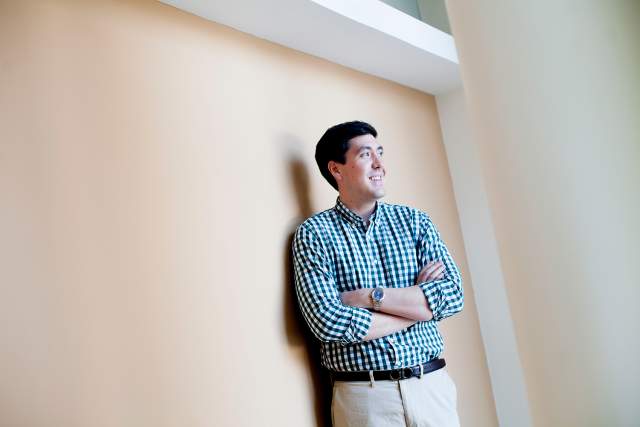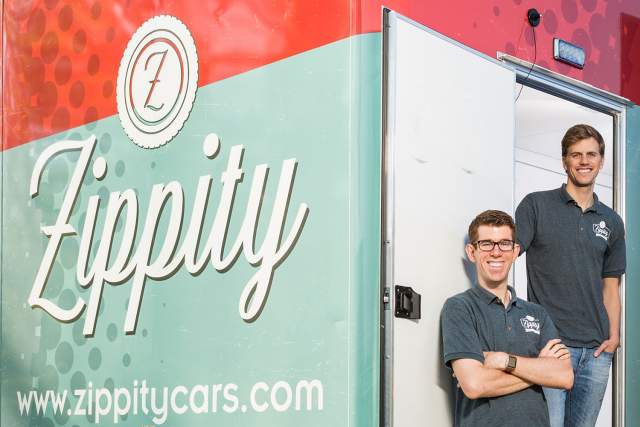Building a Business, in Business School
Networking can be awkward. Stephanie Letzler T’17 is on a mission to make it easier with Pairakeet, a newly launched mobile application she developed while at Tuck.

Letzler received a $10,000 award from Tuck's Center for Private Equity and Entrepreneurship, which helped fund Pairakeet.
In 2014, Stephanie Letzler T’17, then a Google employee working in data platforms, flew from New York to San Francisco for the Lesbians Who Tech Summit.
As she walked through the doors of the conference hall, Letzler looked forward to the prospect of meeting new people. But as so often happens, she instead spent most of the event talking to people she already knew well—or purposefully distracting herself on her phone.
“It’s hard to make genuine, new connections, especially when you look around the room and it seems like everyone is already absorbed in something,” Letzler says. “You don’t want to interrupt.”
The experience led her to consider whether technology could be used more proactively to address the challenges of meeting new people at personal and professional mixers. The result—Pairakeet, a mobile application to help event attendees find fellow “birds of a feather”—launched in October. The app is accessed via access code distributed by event organizers to attendees, who log in with their LinkedIn profiles and are then able to swipe through the profiles of others at the event who may share common interests.
Before starting her new venture, Letzler, a Northwestern University alumna, wanted to dive into the layers of business beyond sales. She knew that business school would be a good fit for her, and an intimate yet connected place like Tuck would help her nurture her idea while also giving her the tools to develop a startup.
“I wanted a more controlled environment to experiment,” she says. “Tuck is a small community but it’s within a much larger Dartmouth ecosystem, and it has the right balance of competition and collaboration that I need to do well.”
First, Letzler needed to understand the psychology and theory behind how people meet in these situations, while also examining human-centered design, or design that incorporates human need into all areas of the development phase. In the spring, Letzler formed an Independent Study around these goals with the help of Steven Kahl D’91 and Adam Kleinbaum, both associate professors who teach in the Tuck core curriculum. Specifically, she wanted to answer two overarching questions: 1.) How do people feel about networking? 2.) How do you design a system to improve people’s experience of it?
“I found that it’s really hard to know who you’d actually get along with and who you’d like to talk to,” she says. “And everyone faces it. There is some interesting research that suggests even seasoned executives run into this—they’ll say that their primary reason for attending an event is to make new connections, but they largely just end up talking to people they already know.”
Letzler received a $10,000 summer startup award from the Center for Private Equity and Entrepreneurship at Tuck along with a founder’s grant from the Dartmouth Entrepreneurial Network in the spring, which helped fund her initial work on Pairakeet and much of the app’s development and design work. She has also tapped into resources at Tuck, continuing to work closely with Steven Kahl, an affiliated faculty member with Tuck’s Center for Private Equity and Entrepreneurship and Center for Digital Strategies, and filling her academic schedule with elective courses that support her goals for the startup. Recently, Letzler brought on her Tuck classmate, Jeff Mullen, to lead product development.
Though the app just launched, Letzler is already thinking about the future. Her business philosophy is to encourage more in-person interactions and highlight the positive outcomes of those interactions—and she sees plenty of opportunities for growth. “If we can make Pairakeet successful, I want to look at other spaces where meaningful offline connections can be made through a really targeted application of technology,” she says.

